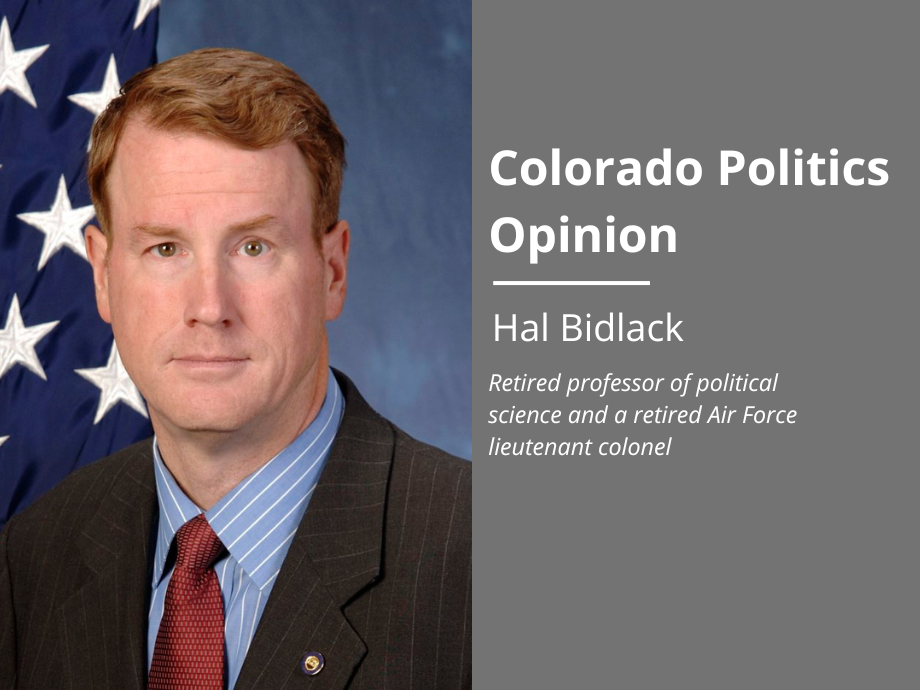A bill to end hidden costs to Colorado consumers? | BIDLACK


I recall a few years back I was checking out of a hotel after a few day’s stay. I knew the room rate, of course, but I was a tad startled to see a whole list of a half dozen additional “fees” tacked on. There was a “tourist” fee, a “resort” fee, as well as a couple of taxes tossed in. I think I resented the fact they were hidden until checkout more than the fees themselves. Had I been told at check-in those fees would be added, I doubt I would have complained. But at checkout, it was irritating.
I thought of that hotel when I was reading a recent Colorado Politics story on a bill that would make the disclosure of such fees mandatory, as they are already in 11 other states. This particular bill has language based on the California law, on the theory that since that text is already law, it is likely acceptable to courts. Four of the 11 have fully banned hidden fees, though the Colorado proposed legislation doesn’t go that far. I wish it did, actually, as it seems fairer to incorporate any hidden fees into the overall price of things from the start.
Stay up to speed: Sign up for daily opinion in your inbox Monday-Friday
According to the bill’s sponsor, state Rep. Naquetta Ricks, hidden fees are becoming more common and more expensive for things like concert tickets, hotel reservations and utility bills. Ricks states those fees add up to about $3,200 per Colorado family during the course of a year and push up consumer prices significantly.
The text of the bill is fairly short, coming in at about four pages. The explanation in the bill summary is fairly clear: The bill prohibits a person from advertising a price for a product, good or service that does not include all mandatory or nondiscretionary fees or charges. Seems hard to oppose that, to me at least.
Interestingly, several industries are specifically exempted from compliance with this bill, should it become law. Restaurants, breweries, airlines and car dealerships are not required to disclose hidden fees, for example. I am at this moment awaiting delivery of a new truck, and I find the fees I don’t hear about until it is time to put down a deposit frustrating. I’m not entirely sure why these few business sectors are exempt.
Mysteriously, the bill passed 7-to-3 in what CoPo reports as a party-line vote. And that puzzles me. Why would all three GOPers vote against a bill that seems like a fairly straightforward consumer protection bill? Is it just that in today’s hyper-partisan climate, any bill put forward by a Dem must be opposed by all GOPers? Or do the Republicans on the committee genuinely like and support hidden fees gouging Coloradans?
That’s not to say there couldn’t be improvements to the bill. Indeed, one person testifying and representing the tech sector argued though consumers deserve transparency in their purchases, regulations should not affect “legitimate pricing practices,” which sounds like a bit of double-speak to me.
One entirely legitimate objection, at least to me, is this type of legislation should be national in scope. If passed and signed into law in Colorado, a person’s efforts to find out, say, hotel costs will vary from inside Colorado to outside our state. No hidden fees here, but yes there will be hidden fees elsewhere. I get that is a reasonable concern and could be seen as placing an undue burden on companies. But already today, companies must adjust their business practices from state to state in many areas, such as a new car purchase. I get that (where’s my truck?).
But given the reluctance of the U.S. House to pass, well, most anything that might make Biden look good, I am not optimistic we could get a national hidden fees law out of committee. Heck, House Speaker Mike Johnson has refused to bring a bipartisan bill to fund Ukraine’s war effort to the House floor for a vote, a bill that passed the Senate with 20 Republicans on board – the most bipartisan thing we’ve seen in a long time. Why? Because a certain former president with multiple felony indictments ordered him not to, as Biden wants it.
I could go off on yet another rant about today’s national GOP allowing thousands of Ukrainians to die rather than give Biden a legislative victory. Oh, I could also rant yet again on why the GOP seems to be entirely won over to the Russian side of things, but I’ll save that for another time.
House Bill 1151 is not perfect, but it is a good step forward in consumer protection. It still has to work its way though the legislative process, but I hope it passes the state House and Senate, and our terrific governor signs it into law.
Stay tuned…
Hal Bidlack is a retired professor of political science and a retired Air Force lieutenant colonel who taught more than 17 years at the U.S. Air Force Academy in Colorado Springs.












